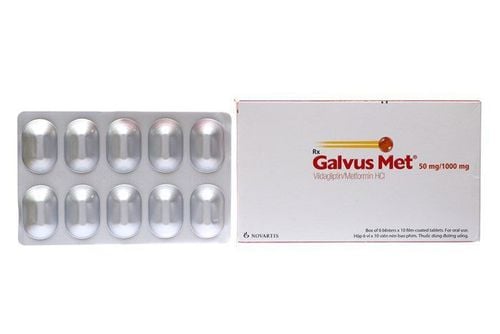Constipation is a condition characterized by reduced bowel movements, often accompanied by difficulty straining and a painful sensation during defecation, caused by hard or excessively large stools. Laxatives provide short-term relief and should only be used for 2 to 3 days.
1.How Long Does It Take for Laxatives to Work?
Laxatives for constipation only help to quickly regulate bowel movements. They are used in certain cases to relieve mild constipation symptoms.
Many people wonder: How long does it take for laxatives to work? Currently, there are various types of laxatives on the market, each with different indications, usage methods, dosages, and durations of effect. It’s essential to follow specific guidance from a gastroenterologist. The time it takes for laxatives to work depends on the type of laxative. Generally, laxatives provide short-term relief and should only be used for 2 to 3 days. Prolonged use of laxatives can harm the intestinal mucosa.
Laxatives for constipation can be categorized into five main groups:
- Lubricant Laxatives: These include medications containing mineral oils such as paraffin oil or vaseline. These are not absorbed in the intestines and act mechanically to relieve constipation by lubricating the stool and softening it, typically within 8 to 72 hours. Common examples include paraffin oil, Parax, and Molagar. Dosages vary depending on the specific medication.
- Bulk-forming Laxatives: This group includes medications that increase mucus in the stool, such as Normacol and Transilane, as well as dietary fibers like Cellusion and Infibran. These laxatives are less toxic, cause minimal irritation, and can be used for longer durations compared to other types of laxatives.
- Osmotic Laxatives: These work by drawing water into the intestines through their high osmotic properties, softening the stool and increasing its bulk, making it easier to pass. Commonly used osmotic agents include lactulose and sorbitol.
- Stimulant Laxatives: These promote bowel movements by stimulating intestinal motility and increasing fluid secretion in the colon. Examples include magnesium salts, phenolphthalein, sodium docusate, and anthraquinones. These are recommended only for short-term use and are not suitable for people with chronic constipation or for children.
- Rectal Laxatives: These are liquid laxatives administered rectally. They stimulate the sigmoid colon and rectum, inducing bowel movements within 5 to 20 minutes. These are primarily used for bowel preparation before surgeries or colonoscopies. Such laxatives are taken 2 to 4 hours prior to the procedure to induce diarrhea and clean out the colon. Examples include glycerin, sodium docusate glycerin, mannitol polyethylene glycol, carrageenan, and polyethylene glycol combined with salts like NaCl, sodium sulfate, sodium bicarbonate, and potassium chloride.
2.Should Laxatives Be Taken Before or After Meals?
Many people wonder whether laxatives should be taken before or after meals. Laxatives are commonly used to treat constipation. Because food may influence how certain laxatives work. Some are recommended to be taken after meals, while others are advised to be taken before eating.
Specifically with lubricant laxatives those that lubricate stools are recommended not to be taken on an empty stomach, especially not before bedtime or when lying down, as they may be absorbed and cause lipid pneumonia. For this reason, these types of laxatives should be taken after meals. In contrast, osmotic laxatives containing lactulose are advised to be taken on an empty stomach to achieve maximum effectiveness.
When taking laxatives, it’s recommended to drink plenty of water to prevent dehydration, which can occur due to excessive water absorption by the intestines.
Constipation can often be identified through the following symptoms:
- Having fewer than three bowel movements per week.
- Experiencing abdominal cramps or bloating.
- Difficulty during bowel movements, with dry, hard stools causing pain around the rectum.
If you notice the above symptoms, try to eat easily digestible foods, exercise regularly to stimulate bowel movements, maintain a healthy lifestyle, and drink plenty of water. If these changes do not alleviate constipation, you may consider using laxatives to ease the digestion process.
3.Precautions When Using Laxatives
Using laxatives to treat constipation is common, but not everyone knows how to use them properly. Here are some important notes for those planning to use or currently using laxatives:
- Do not use laxatives for more than 7 to 10 days. Prolonged use can lead to digestive issues such as diarrhea.
- Avoid over-reliance on laxatives.
While laxatives are effective for relieving constipation, over-dependence can be harmful. Instead, try adjusting your diet and rest habits to improve your digestive health and reduce constipation naturally. - Do not chew laxative tablets.
Although chewing tablets is common, it is not recommended for laxatives, as it may irritate the stomach. - Drink plenty of water while taking laxatives.
Frequent bowel movements can cause dehydration and electrolyte imbalance. Make sure to hydrate adequately to prevent fatigue. - Seek medical advice if constipation persists.
If laxatives do not resolve your constipation, consult a healthcare provider for proper diagnosis and treatment. - Do not use laxatives to treat constipation in children under 6 years old without the prescription of a specialist or pediatrician. If you are pregnant, consult your doctor before using laxatives. Bulk-forming and stool-softening laxatives are generally safe during pregnancy. However, stimulant laxatives may pose risks to both you and your baby.
So, the questions about how long it takes for laxatives to work and whether they should be taken before or after meals have been answered. Hopefully, the information in the article has helped address your concerns about using laxatives. However, this article is for reference only; patients should consult a medical professional and use laxatives according to the prescribed dosage and recommendations.
To schedule an appointment at the hospital, please call the HOTLINE or book directly HERE. Download and use the MyVinmec app to schedule appointments automatically, manage and track your bookings, and make appointments anytime, anywhere through the app.













